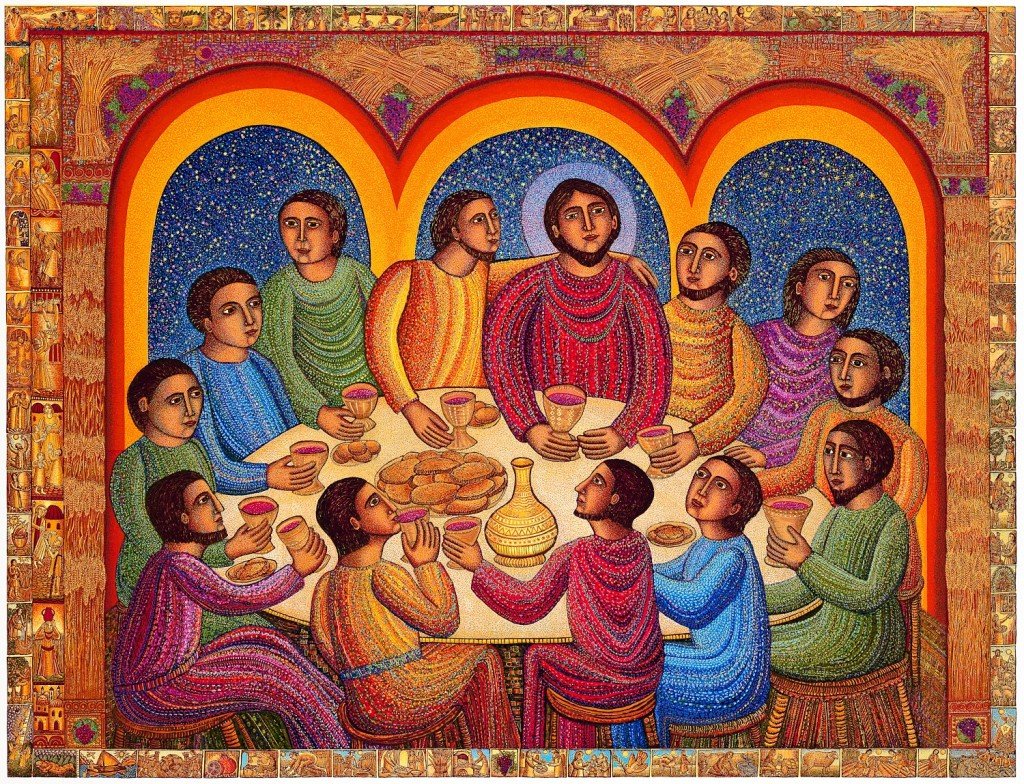 |
John August Swanson's The Last Supper.
Used with permission |
It’s Mardi Gras—and you know what that means. Beyond the party-till-you-drop bead-throw fest in Nawlins and costumes for Carnevale in Venice, the day has spiritual significance. “Mardi Gras” means “Fat Tuesday.” And Fat Tuesday precedes Ash Wednesday, which marks the beginning of Lent. Lent is the forty-day season leading up to Easter.
Some of us have grown up in traditions that connect Lent and its accompanying practices with legalism. We tend to make only one association with the season—a question: “What are you giving up for Lent?” I can’t really blame them. So many folks flaunt what they give up. I've seen people who plan to give up alcohol get falling-down-drunk on Tuesday. Really, people? Doesn’t that kind of defeat the purpose?
Still, some find meaning in observing a season of penance, prayer, and self-denial during Lent. The reason to give up chocolate or snacks between meals or new purchases or meat or shoes or Facebook on one's phone is to constantly remind our flesh that the Son of God gave up everything for us. In the words of the late Keith Green, “Jesus rose from the dead, and [we] can’t even get out of bed.” It’s this flesh-driven mentality against which we wage war in our Lenten observances.
As my friend Ruth Haley Barton says, "The real question of the Lenten season is how will I clear out the junk and garbage in my life so that I can be restored to God in some fresh way? What are the disciplines that will open up space for God to create a clean heart and new spirit in me?"
Such clearning out and space-opening are worthy goals, regardless of our denominational affiliation. So I offer here some suggestions. Consider these options to help you observe a more meaningful Lenten season.
Begin by asking God what needs a clean-out in your life.Consider what non-essential activity sucks the most time from your day and/or money from your wallet. Is it Facebook? Twitter? Words with Friends? Listening to your car radio? Eating out? The mocha latte with whipped cream?Give it up for forty days and use the time and/or money for something meaningful. Give to the poor. Fill the free time with prayer, meditation, or memorization of a portion of Scripture. Do some reflective reading.Check out the “Lent” section in the Book of Common Prayer and follow the meditations leading up to and including Holy Week. Familiarize yourself with the Ash Wednesday sermons of seventeenth-century English bishop, Lancelot Andrewes. A contemporary of Shakespeare, the brilliant bishop left us a library of great writings, some of which influenced T. S. Eliot to convert to Christianity. Fast from using words for a day or part of a day. Take a silent retreat and simply listen.Adopt one of the twenty-five ideas on this list compiled by a group of creative teens, some of whom gave up their beds and in-door accommodations.
Should we feel led to participate in this way, whatever we do, we must draw as little attention to ourselves as possible. In the words of our Lord, “When you pray, go into your room, close the door and pray to your Father, who is unseen. Then your Father, who sees what is done in secret, will reward you” (
Matt. 6:6). How cool would it be if every follower of Christ give up something truly significant for Lent, like spiritual pride?

